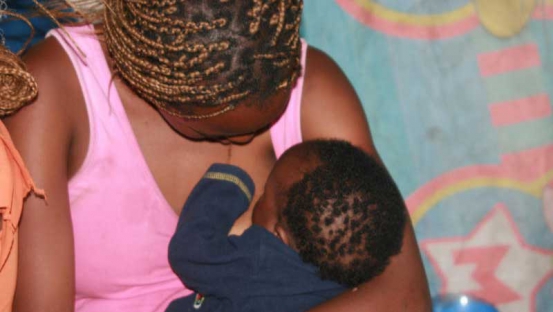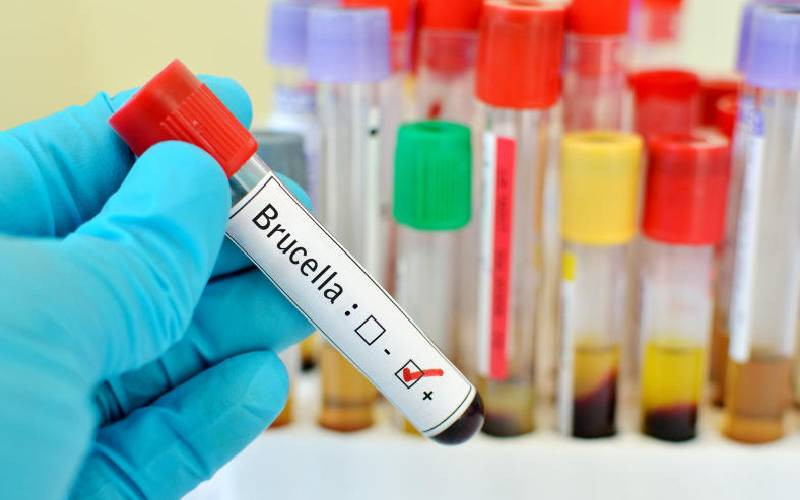
A group of teenage girls huddle in an overcrowded mud-walled single room in the sprawling Bondeni slum of Nakuru County. Two of them nurse fragile looking babies aged six and four months.
In the same room another girl, barely 16, is heavily pregnant. She looks confused. A damp smell dominates the cold room that hosts two beds — one rickety and one makeshift.
The damp mud walls make the babies wheeze with every breath they take.
This is just a glimpse of the sad state of affairs teenage mothers in Bondeni, Kaptembwo and Flamingo slums have to contend with, even as the number of teenage pregnancies in the region rises.
Drop out rate
According to the Ministry of Health, the school drop out rate in the region is high. Often students who drop out are usually too poor to look after themselves. “This is where we live; we share the rent among ourselves but this month we are yet to pay and may be evicted,” Lucy, 17, says.
Nancy, also 17, lives next door and has come to visit. She has left her baby sleeping to find out how Linda, heavily pregnant, is doing.
“My baby is four-months-old and my husband has gone to work,” Nancy says. Her ‘husband’, also a teenager, is a casual labourer and sometimes fails to return home when business is low. Linda, who looks confused, does not know how advanced her pregnancy is.
“I do not know when I will deliver but I will start buying baby’s clothes as soon as I get money. My unborn baby’s father visits although I do not know what he does for a living,” she says.
In the neighbouring Flamingo slum, 14-year-old Eunice, the mother to a two-week-old infant, is taking her lunch. Her two-year-old sister pleads to have a share of the meal, and grabs the food then scampers.
“I had prepared a small meal for Eunice because I did not have enough money. However, Eunice is a slow eater and the sister, who was still hungry, took away her food,” Eunice’s mother says.
Eunice dropped out of school in May when the school matron discovered she was pregnant. “I had not planned to be a mother; I would like to go back to school, to enable me work with Kenya Navy, which is my dream job,” she says.
The area’s Community Health Worker Rosa Picha says most teenage mothers to become prostitutes to raise money to feed their babies.
Picha says that at night, the young mothers give their babies drugs to keep them asleep. “Teenage motherhood has highly contributed to increased cases of prostitution in the slums. We are working closely with local administrators to address this,” says Picha.
Nakuru County Reproductive Health Coordinator Jessica Mungau says unwanted pregnancies are common because education on reproductive health is lacking.
Health programme
This has forced Ministry of Health to launch a reproductive health programme at the Kenya National Library Services branch in Nakuru that targets teenagers.
According to the Kenya Demographic Health Survey, teen pregnancies in the region was at 18 per cent in 2008/9, but rose to 18.4 per cent in 2014.
Mungau notes that under the programme, awareness is created about the dangers of drugs and substance abuse because they significantly contribute to unsafe sex.
“Some teenagers are lured into sex after using drugs,” she says about the pilot programme that also targets children in some primary and secondary schools.
“Education stakeholders have noted that during holidays and weekends, most learners are idle and this is when we put them through the programme,” Mungau says.
“Parents trust teachers to nurture their children but unfortunately teachers are unable to provide the best education because they have to balance between academics and promoting behaviour change,” says Mungao.
Discover sex
Because most teenagers lack information on reproductive health, they resort to unprotected sex with their peers or even with adults who offer them gifts, including smartphones, says the health expert.
“Teenagers discover sex from their peers. When they become pregnant, they often opt for unsafe abortions,” she says.
Mungau observes that although there are still gaps in understanding adolescents’ needs, systematic reviews and comprehensive school-based education will help reduce teen pregnancies.
An official in charge of the library, Purity Mutoko, says about 50 learners have been enrolled in the programme.
Last year, the county launched the Reproductive, Maternal, Neo-natal and Adolescent (RMNAH) framework to provide direction for the coordination, implementation, monitoring and evaluation of reproductive health.
 The Standard Group Plc is a multi-media organization with investments in media
platforms spanning newspaper print
operations, television, radio broadcasting, digital and online services. The
Standard Group is recognized as a
leading multi-media house in Kenya with a key influence in matters of national
and international interest.
The Standard Group Plc is a multi-media organization with investments in media
platforms spanning newspaper print
operations, television, radio broadcasting, digital and online services. The
Standard Group is recognized as a
leading multi-media house in Kenya with a key influence in matters of national
and international interest.











